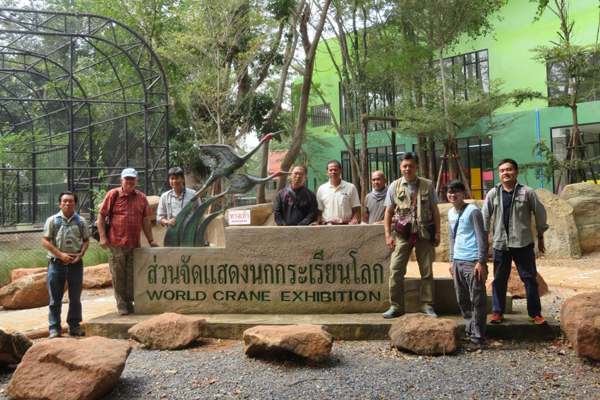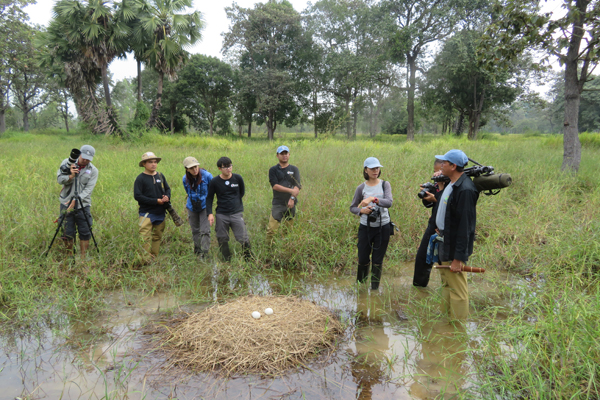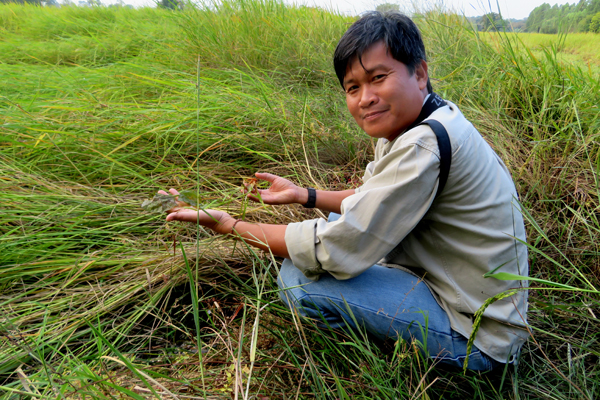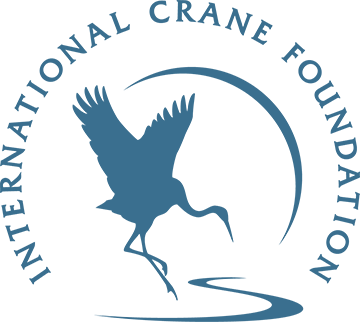
The idea for an Eastern Sarus Crane reintroduction program in Thailand “hatched” at an International Crane Workshop in 1983 hosted by the Government of India and the International Crane Foundation. One year later we presented three pairs of juvenile Australian Sarus Cranes to the Queen of Thailand and the Royal Forestry Department. In 1986, Eastern Sarus Cranes were rediscovered in Vietnam and soon thereafter in Cambodia. Eastern Sarus Cranes, confiscated from animal dealers who purchased cranes in Cambodia, were established at the Bangphra Waterfowl Research Station of the Royal Forestry Department, and subsequently at the Khao Khio Open Zoo and the Khorat Zoo of the Zoological Parks Organization of Thailand. The Australian Sarus were used for avicultural research but never used for captive breeding.

The Khorat Zoo, under the skilled avicultural guidance of Mr. Wonchai, developed excellence in the captive breeding of cranes. Under the leadership of the Zoological Parks and the province of Buriram, a release of captive-reared cranes began in eastern Thailand in 2011. To date, 70 birds have been released and about 50 have survived. In 2016, the first successful breeding was achieved in the wild with three juveniles fledged from three pairs. In 2017, nine juveniles were fledged from 11 pairs. The biological work for the reintroduction has been supervised by Dr. Boripat Siriaroonrat and Ms. Nuchjaree Purchkoon of the Zoological Parks, while the sociological work with the local people has been spearheaded by Dr. Piyakarn Teartisup of Mahidol University.

Since 2011 (very much as a cheerleader), I have spent several days each year at Khorat Zoo and in the field with my Thai colleagues, to share information about the International Crane Foundation’s work with crane reintroductions and field studies, and to provide encouragement in what may prove to be the first self-sustaining crane population created by releases of captive-reared birds. This year the Thai team and I were delighted to have the participation of Dr. Tran Triet, our Southeast Asia Program Coordinator (pictured above). Triet provided valued advice about possible next steps in the field research.
 Story submitted by George Archibald, Co-founder and Senior Conservationist. Click here to learn more about our work in South/Southeast Asia.
Story submitted by George Archibald, Co-founder and Senior Conservationist. Click here to learn more about our work in South/Southeast Asia.
